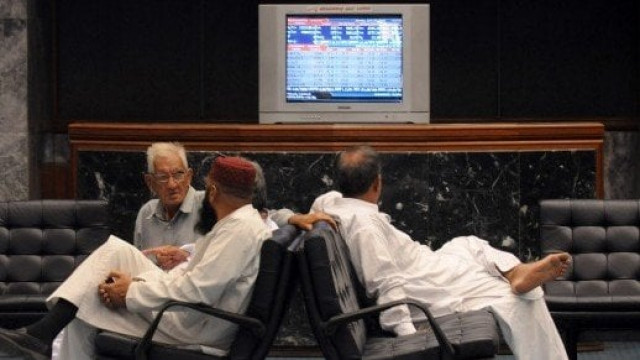Market watch: Stocks falter on negative news flow
Benchmark KSE-100 index sheds 108.81 points to settle at 44,477.24

The Pakistan Stock Exchange once again entered the negative territory as the benchmark KSE-100 index shed 109 points in a roller coaster session on Friday and closed the week in the red.
Investor sentiment was dented primarily on reports of massive foreign selling at the local bourse and the lowering of economic growth forecast for Pakistan by the World Bank. As a result, the market traded in a narrow range throughout the session as investors opted to stay on the sidelines
However, upbeat remittances data for September, which depicted year-on-year growth of 16.9%, coupled with a slight recovery in the rupee value against the greenback provided some relief to the investors by midday.
The session kicked off with a short-lived spike, however, weak investor spirits dragged the market into the red zone in the initial hour. From that point onwards, the index traded in a narrow range and closed first half of the session with a loss of 83 points.
The second half kicked off positively but the market was unable to sustain the increase and dived below the 44,500-point mark. A buying spree in the final hour wiped off most of the losses.
At close, the benchmark KSE-100 index recorded a decrease of 108.81 points, or 0.24%, to settle at 44,477.24.
Arif Habib Limited, in its report, said that the market traded range bound, oscillating between -248 points and +84 points amid low volumes. It closed lower by 109 points.
Foreign fund outflows continued in the face of MSCI reclassification of Pakistan’s bourse, triggering selling pressure in bank, fertiliser and cement sectors.
Local mutual funds ramped up buying activity, which helped the KSE-100 index bear the selling pressure.
Sectors contributing to the performance included cement (-74 points), power (-25 points), fertiliser (-23 points), pharma (-22 points) and investment banks (-13 points).
Stocks that contributed positively to the index were Systems Limited (+39 points), Habib Bank Limited (+20 points), Colgate-Palmolive Pakistan (+17 points), Bank AL Habib (+16 points) and MCB Bank (+15 points).
Stocks that contributed negatively included Lucky Cement (-23 points), Hub Power Company (-19 points), Fauji Fertiliser Company (-17 points), Cherat Cement Company (-15 points) and TRG Pakistan (-15 points).
JS Global analyst Neelum Naz said that the lack of immediate triggers resulted in a lacklustre, low-volume session.
The KSE-100 index touched an intra-day high of 44,670 points but slid to 44,477 points by the close of market.
On the news front, the World Bank revised down Pakistan’s gross domestic product (GDP) growth projection to 3.4% for current fiscal year 2021-22.
“The market needs strong triggers to overcome the 45,000-point level,” the analyst said. “Investors are, therefore, advised to stay cautious and build exposure only in the wake of major dips in the market, especially in the banking, fertiliser, steel and cement sectors.”
Overall trading volumes decreased to 176.1 million shares compared with Thursday’s tally of 296 million. The value of shares traded during the day was Rs6.8 billion.
Shares of 550 companies were traded. At the end of the day, 165 stocks closed higher, 369 declined and 16 remained unchanged.
WorldCall Telecom was the volume leader with 18.5 million shares, losing Rs0.01 to close at Rs2.53. It was followed by Telecard Limited with 14.2 million shares, losing Rs0.59 to close at Rs18.67 and Silkbank with 9.3 million shares, gaining Rs0.04 to close at Rs1.56.
Foreign institutional investors were net buyers of Rs708.35 million worth of shares during the trading session, according to data compiled by the National Clearing Company of Pakistan.



















COMMENTS
Comments are moderated and generally will be posted if they are on-topic and not abusive.
For more information, please see our Comments FAQ